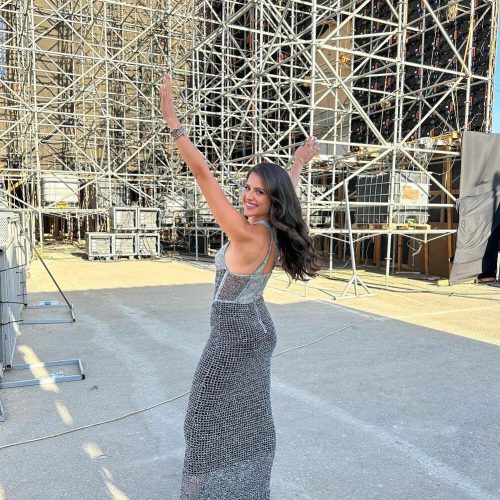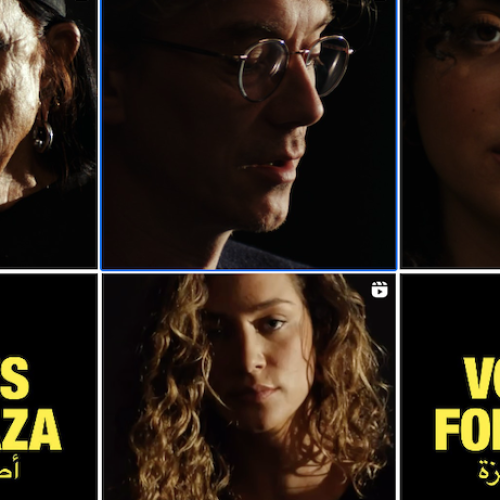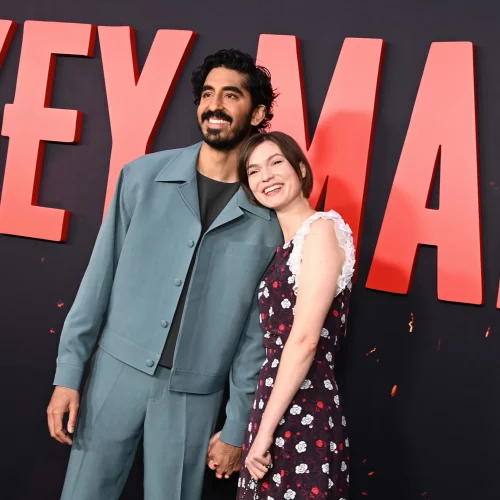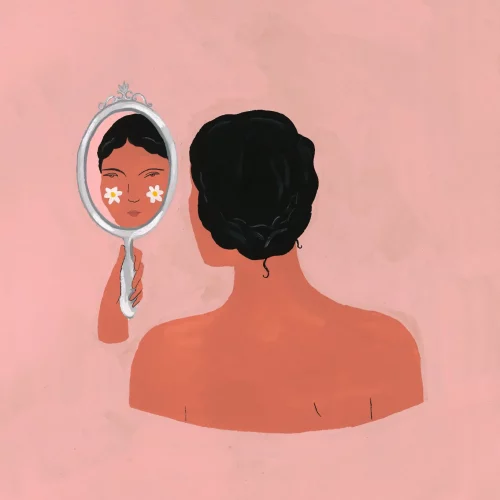With a radiant smile, Nour Abosaif joyfully shared, “I don’t feel like I am that 14-year-old girl anymore that felt embarrassed or afraid of embracing her culture in the West.” This sentiment emerged as we discussed her connection to her Arab heritage since the creation of Culture Mocktail, the podcast she built and has been co-hosting with her bestfriend Aisha Aldris since the end of the 2020 pandemic.
In recent years, there has been a notable surge in podcasts empowering Arabic culture and narratives. Numerous young journalists, hosts, and individuals from second or third generations of immigrants and of Arabic diaspora across the globe, are asserting their heritage and emphasizing the significance of cultural exploration through the use of sound.
Culture Mocktail was born from a natural intuition from the two friends, both navigating life between two cultures. Abosaif, an Egyptian raised in the UAE, and Aldris, whose background is half Irish and half Syrian, crossed paths in the United Kingdom. “We had a very clear message and we had our slogan, which was to unfold and embrace what it means to be a cultural misfit, which the wording of that kind of developed over time.”
For many born into the Arabic diaspora in the West, often referred to as “third culture kids,” the imperative to reconcile the culture of their current residence with their Arabic heritage stems from an ongoing struggle rooted in the misrepresentation of colonial history and the trauma of family exile. Donia Ismail, a French-Algerian-Egyptian journalist and the creator of the podcast Allo 213, described her child of immigrant experience: “Because that’s inherent to being an immigrant. Even if you’re not the one who physically immigrated, when your parents did, you inevitably grow up with a sense of longing for their homeland. I realized that I did not know anything about Algeria. And I told myself, it’s not possible that I don’t know my culture, and that was really disorienting to me that was living with my Algerian family.”
Even though she had always been familiar with Egypt, spending every holiday there as a child in Cairo and Alexandria, Ismail came to realize that her first formal exposure to her mother’s country was through school, and was presented in a westernized and colonial manner. “I actually understood at school that the misinformation about Arabs started with Algeria. It’s like France still hasn’t come to terms with losing the war. They haven’t accepted our victory, you know? And all the stereotypes we hear about Arabs in France today stem from the colonization of Algeria.” This particularly has a relevance in light of the comment the President of France, Emmanuel Macron, made in 2022, where he described the French and Algerian history as a “tumultuous love affair.”
It’s this lack of knowledge and inaccurate information about the history of her country that prompted her to create a podcast. She decided to ask one question per episode, focusing on Algeria. “I needed to discover Algeria in a way that wasn’t solely dependent on what my mother told me or what I had heard, which oVen revolved around the colonial war,” she explained. “I wanted to learn about other aspects of Algerian culture and history.” The key focus of her podcast is to explore “An Algeria before and after France,” aiming to provide a more nuanced understanding of the country beyond its colonial past.
The desire for comprehension, fueled by a lack of education on diverse Middle Eastern histories and issues, serves as the driving force behind the creation of numerous podcasts dedicated to prioritizing the region. “I think our generation get a lot of their news from different social medias like TikTok, and a lot of the times, it’s just not comprehensive. They will get snippets of the story but they won’t know everything,” says Edgar Mannheimer. That’s why he created Kalam, a podcast about culture, history, and the politics of the Middle East. His first season focuses on the history of Palestine, aiming to address the lack of knowledge about the Israeli-Palestinian conflict. In his podcast, Mannheimer aims to confront the pro- Israeli bias perpetuated by Western media and give voice to Palestinians through documentary-style conversations intertwined with historical storytelling.
As podcasts originated in the United States at the beginning of the century, the concept centered on providing a platform for voices that were not typically heard on air or television. The ability to record one’s voice and share opinions and stories quickly caught on, and the podcast medium itself became mainstream. Today, anyone who wants their opinion to be heard can speak on a broadcasted platform.
In the midst of a resurgence of negative portrayals of the MENA regions and a rise in Islamophobic debates in the media, it’s only natural that the diaspora seeks to offer its perspective. Through the medium of podcasts, individuals have the opportunity to offer their unique perspectives on life, diverging from preconceived notions of Arab identity often propagated by others.
For Egyptian-American sisters Mona and Hajer, their podcast Yalla, Bye. serves as “a place where we can show up as Arab-American women and just be. And not have to perform.” They started their project through episodes talking about subjects reflecting their Arabic identity and upbringing like “Let’s talk about hasad/evil eye” and their conversation with singer Saint Levant on “Let’s talk about the power of diaspora.” However, their podcast evolved to cover broader topics, including their episode “Let’s talk about our friend and their partner.” Despite this evolution, they maintain the essence of their identity, as Mona explains, “Because we’re Arab-American […] it’s always there.”
In this new wave of podcasts, the need for recognition and safe spaces for dialogue stands out. Through their different discussion with scholars and artists, Culture Mocktail’s episodes would treat of subjects from “Unapologetic Cultural Identity” to discussion with Markian Benhamou on their experiences as third culture kids. “We’re just helping people connect with their identity, embrace who they are. Similar to that backstory that we have […] it’s all about just taking the good, taking the lessons and also not being afraid to speak about the bad and learn from them as well and kind of figure out from that how we want to frame and direct our own lives.”
For many, the opportunity to learn from individuals who are willing to teach, share, or engage in discussions about their heritage is invaluable. Mannheimer from Kalam describes the educational purpose of his podcast season, saying, “I think this podcast could be like a beginning, like an introduction, where I’m kind of holding your hand and saying, ‘This is what happened in the conflict.’ And if you want to delve deeper, you can use this as a foundation. It helps you visualize the political timeline in your mind.” This approach not only facilitates understanding but also empowers listeners to explore and interpret complex historical narratives on their own terms.









